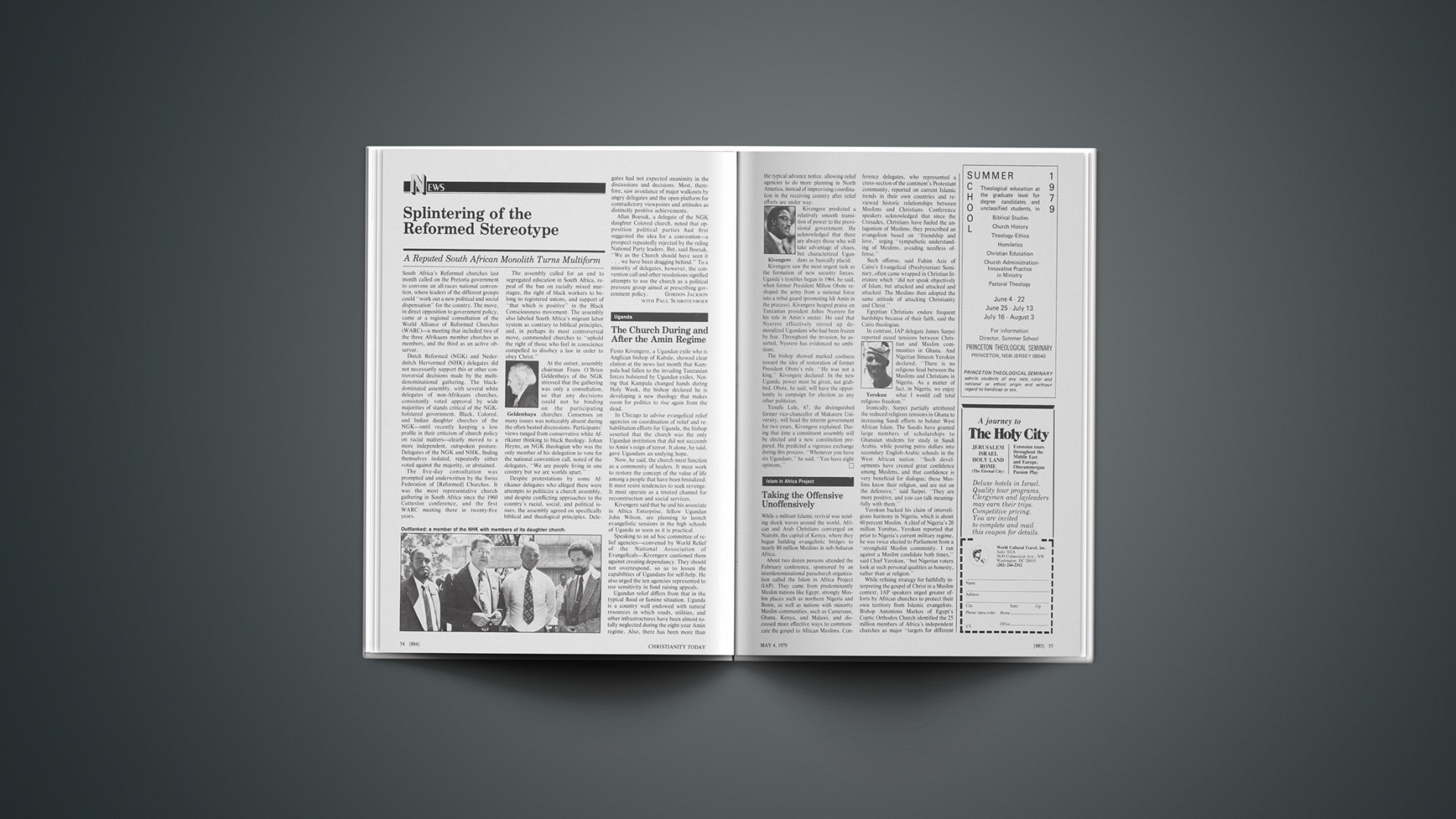Festo Kivengere, a Ugandan exile who is Anglican bishop of Kabale, showed clear elation at the news last month that Kampala had fallen to the invading Tanzanian forces bolstered by Ugandan exiles. Noting that Kampala changed hands during Holy Week, the bishop declared he is developing a new theology that makes room for politics to rise again from the dead.
In Chicago to advise evangelical relief agencies on coordination of relief and rehabilitation efforts for Uganda, the bishop asserted that the church was the only Ugandan institution that did not succumb to Amin’s reign of terror. It alone, he said, gave Ugandans an undying hope.
Now, he said, the church must function as a community of healers. It must work to restore the concept of the value of life among a people that have been brutalized. It must resist tendencies to seek revenge. It must operate as a trusted channel for reconstruction and social services.
Kivengere said that he and his associate in Africa Enterprise, fellow Ugandan John Wilson, are planning to launch evangelistic sessions in the high schools of Uganda as soon as it is practical.
Speaking to an ad hoc committee of relief agencies—convened by World Relief of the National Association of Evangelicals—Kivengere cautioned them against creating dependancy. They should not overrespond, so as to lessen the capabilities of Ugandans for self-help. He also urged the ten agencies represented to use sensitivity in fund raising appeals.
Ugandan relief differs from that in the typical flood or famine situation. Uganda is a country well endowed with natural resources in which roads, utilities, and other infrastructures have been almost totally neglected during the eight-year Amin regime. Also, there has been more than the typical advance notice, allowing relief agencies to do more planning in North America, instead of improvising coordination in the receiving country after relief efforts are under way.
Kivengere predicted a relatively smooth transition of power to the provisional government. He acknowledged that there are always those who will take advantage of chaos, but characterized Ugandans as basically placid.
Kivengere saw the most urgent task as the formation of new security forces. Uganda’s troubles began in 1964, he said, when former President Milton Obote reshaped the army from a national force into a tribal guard (promoting Idi Amin in the process). Kivengere heaped praise on Tanzanian president Julius Nyerere for his role in Amin’s ouster. He said that Nyerere effectively stirred up demoralized Ugandans who had been frozen by fear. Throughout the invasion, he asserted, Nyerere has evidenced no ambitions.
The bishop showed marked coolness toward the idea of restoration of former President Obote’s rule. “He was not a king,” Kivengere declared. In the new Uganda, power must be given, not grabbed. Obote, he said, will have the opportunity to campaign for election as any other politician.
Yusufu Lule, 67, the distinguished former vice-chancellor of Makarere University, will head the interim government for two years, Kivengere explained. During that time a constituent assembly will be elected and a new constitution prepared. He predicted a vigorous exchange during this process. “Whenever you have six Ugandans.” he said, “You have eight opinions.”










